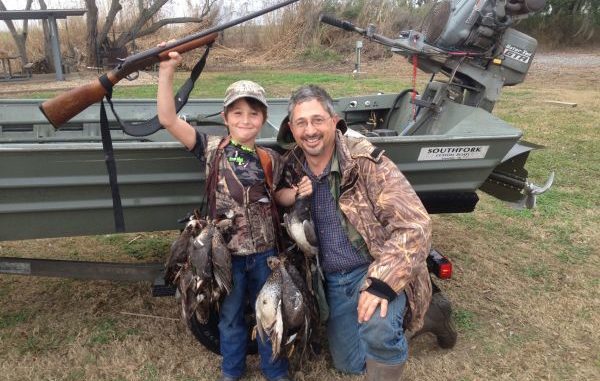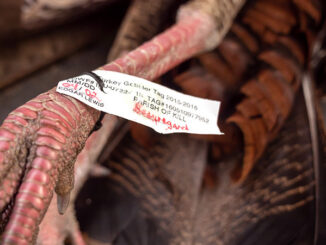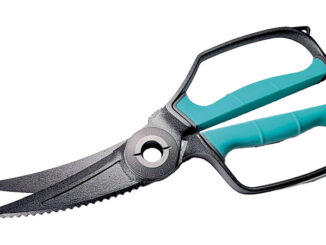
Season dates will be set earlier, zone boundaries will probably shift, Reynolds says
Louisiana hunters will know next April the duck season dates for the 2016-17 state season — a full four months earlier than when that information is traditionally voted on by the Wildlife and Fisheries Commission every August.
And depending on hunter input later this month at six public meetings to be held across the state to discuss potential zone changes and the season split structure — and what the Commission ultimately decides to do with that input at its upcoming November 2015 meeting — it’s entirely possible some zone boundaries could be redrawn for the 2016-17 through 2020-21 waterfowl hunting seasons.
“It’s not only possible, I think it’s highly likely that zone boundaries will change,” said Larry Reynolds, waterfowl study leader for the Louisiana Department of Wildlife and Fisheries. “Lots of hunters were angry about the season dates decision this year.
“There are lots of hunters in Southeast Louisiana that want to hunt later.”
To that end, one of the zone proposals Reynolds will present on his six-city roadshow is reinstating the Houma Navigation Canal as the boundary between the Coastal Zone and the East Zone.
“That would put it back to where it was before 2001,” Reynolds said. “So Plaquemines Parish, Lafourche Parish, St. Bernard and all those parishes south of New Orleans used to be in the East Zone.
“That’s one change I’ll be asking for feedback on.”
Another potential change hunters will be able to weigh-in on is pushing the current northern boundary of the Coastal Zone southward through New Iberia and then west down Highway 14 to Lake Charles, where it would tie-in with Interstate 10.
“That would put a lot of rice-growing acreage in Acadia Parish and Jeff Davis and northern Vermilion Parish in the East Zone,” Reynolds said. “The East Zone typically has later season dates, and that would allow those rice farmers more time to get their harvest out and get their fields ready before the season opened, and it would give those rice field hunters a week later season dates.
“That didn’t get any support in the Hunter Opinion Survey, so I know I’m suggesting a change that didn’t receive a lot of support, but it makes a lot of sense. For hunters who hunt rice fields and farmers that farm rice fields — if the farmers want more time to get stuff ready and those hunters say they kill birds later — that’s something that might work out OK.”
The third zone boundary change up for discussion is straightening out the boundary line between the East and West Zones in North Louisiana.
“What I’m proposing there is straightening out that zig-zag to the Arkansas border, but doing it a little west of Highway 167 and actually going over to Highway 79,” Reynolds said.
All of these potential changes have to be decided this fall because of a shift in methodology by the U.S. Fish and Wildlife Service, which will start setting season frameworks in December — rather than in July — as was typically done in the past.
“It’s because of the constricted time period,” Reynolds said. “You’ve got an increase in the complications of the scientific process used to map out the seasons, and a restricted time period to go through all the legal and administrative requirements to set a season.
“So the Fish and Wildlife Service was desperate to find a way to change the season-setting process to alleviate those legal and administrative burdens. This was the best possible option.”
In the past, the waterfowl season’s federal framework was typically set in July, and the Louisiana Wildlife and Fisheries Commission would approve a Declaration of Emergency at its August meeting to tentatively set the state’s waterfowl season dates. Then in mid-September the federal framework would become official after a public comment period. And at that point, the state’s season dates would actually become finalized.
“Now what we’re doing is the federal framework will be proposed in December,” Reynolds said. “Then the states will propose their seasons in January. Then the federal framework, instead of being proposed in July and finalized in mid-September, will be proposed in December and finalized in March.
“So there will be three months of public comment and six public meetings, just like when we set the deer hunting regulations. So the state seasons will be finalized in April, and that’s when hunters will know what their duck season dates are.”
One inherent drawback to the new system is that season dates will be set based on prior year’s data.
“It’s not a good thing. You’ve got a one-year lag. You’re using the best available information at the time you’re setting the season, but you’re not setting the season at the time when you would have the best available information,” Reynolds said. “What that means is that you’re one year behind. The population may decline when you’ve already set a liberal season.”
The good news is that Reynolds said duck populations don’t usually radically change in a year’s time, so adjustments can be made to the following season’s framework to address any particular issues.
“If history is any indication, it’s just not that big of a deal because duck populations don’t vary widely from year to year,” he said. “They trend in a direction over a number of years.”
All this information and more will be presented at the six public meetings scheduled across the state later this month. Reynolds will take the zone and split feedback received at the meetings, then compile it and present it to the LWF Commission at its October meeting.
Whatever decision the Commission makes in October, the public will have one month to comment on, he said.
“Then in November, they’ll make a final decision,” Reynolds said. “And whatever that decision is will be what I send to the Fish and Wildlife Service as Louisiana’s zones and splits to go into the federal framework in December.”
All meetings will begin at 6 p.m. with the following dates and locations:
Monday, Sept. 14: Bossier Sheriff Sub Station, 2510 Viking Drive, Bossier City, LA 71111
Tuesday, Sept. 15: West Monroe Convention Center, 901 Ridge Ave., West Monroe, LA 71291
Thursday, Sept. 17: Alexandria Convention Hall, 915 3rd Street, Alexandria, LA 71301
Tuesday, Sept. 22: Estuarine Habitats & Coastal Fisheries Center, 646 Cajundome Blvd., Lafayette, LA 70506
Wednesday, Sept. 23: Joseph S. Yenni Building, 1221 Elmwood Park Blvd., 2nd Floor Council Chambers, Jefferson, LA 70123
Thursday, Sept. 24: LSU Ag. Center, 7101 Gulf Hwy, Lake Charles, LA 70607
For more information, contact Larry Reynolds at 225-765-0456, or email him here.


